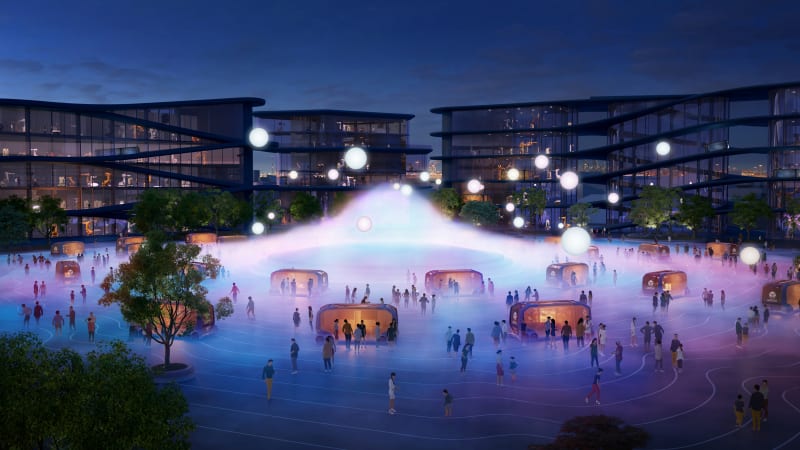Toyota plans to build 175-acre ‘Woven City’ of the future housing 2,000 people
https://ift.tt/2s5jUlq

Every year, automotive manufacturers release ideas, sketches, and renderings of and for their visions of the future. The fantastical presentations and proposals capture imaginations and theorize how these near-future communities would change society (and how their products would play crucial roles, of course). This decade, Toyota wants to take things a step further and actually build a city of the future prototype.
Toyota used its stage at CES 2020 to announce its intentions to break ground on a new project that it is calling a prototype city of the future. The community, named the Woven City, will be set at the foot of Mount Fuji in Japan on a 175-acre plot. Toyota envisions the city to house roughly 2,000 people and serve as a research and testing bed for autonomy, robotics, personal mobility, smart homes and artificial intelligence.
In addition to feeding and powering its own development, Toyota hopes others will use the unique opportunity to explore, as well. Toyota is leaving an open invitation for commercial and academic partners to work with Toyota on the “living laboratory” and hopes individual scientists and researchers will also take advantage. Toyota enlisted Danish architect Bjark Ingels, who worked on New York’s 2 World Trade Center and Google’s Mountain View and London headquarters, for the design.
In the city, the street is split into three lanes for three different uses: fast vehicles in one, personal mobility and pedestrians in two, and a “park-like promenade” specifically for pedestrians. Only fully autonomous zero-emission vehicles are allowed on the “main thoroughfares,” and Toyota e-Palettes will serve as transportation, delivery bots and mobile retail units. Toyota also went into specific detail about its plans for the materials and housing:
The city is planned to be fully sustainable, with buildings made mostly of wood to minimize the carbon footprint, using traditional Japanese wood joinery, combined with robotic production methods. The rooftops will be covered in photo-voltaic panels to generate solar power in addition to power generated by hydrogen fuel cells. Toyota plans to weave in the outdoors throughout the city, with native vegetation and hydroponics.
Residences will be equipped with the latest in human support technologies, such as in-home robotics to assist with daily living. The homes will use sensor-based AI to check occupants’ health, take care of basic needs and enhance daily life, creating an opportunity to deploy connected technology with integrity and trust, securely and positively.
Toyota wants to break ground on this project in 2021. Eventually, it will start filling the city with its company employees and their families, retired couples, businesses, scientists, and industry partners.
Auto Blog
via Autoblog https://ift.tt/1afPJWx
January 6, 2020 at 07:19PM